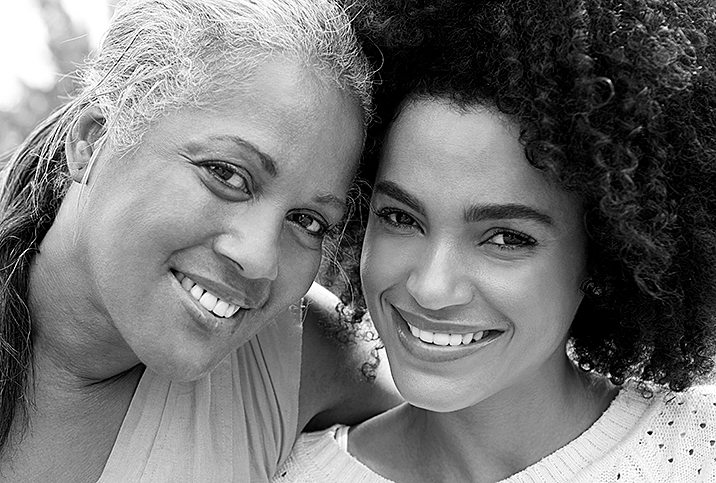Didn't These Guys Move Out? Living With Your Adult Children

From February 2020 to July 2020, 2.6 million young people moved back in with their parents.
I'm going to go out on a limb and say it's unlikely a majority of these folks had, "Sleep in my childhood bedroom" on their list of New Year's resolutions. I certainly didn't. I'm one of the 52 percent of young people living with one or more parents.
This massive homecoming—unprecedented since the Great Depression in the 1930s—is emblematic of the COVID-19 pandemic: It was unexpected, strange and, for those fortunate enough to remain stable and safe, an opportunity to reevaluate past patterns.
"For many people, living with adult parents when there's a history of toxicity is just a bad idea," said Matt Lundquist, licensed clinical social worker (LCSW) and founder of Tribeca Therapy in New York City. "But, yes, in some fortunate instances, there's a chance to heal. This depends on whether the parents have grown and, to a lesser degree, perhaps, whether or how much the adult child has grown. But it is also served by clear boundaries. It certainly can be something people can make work and find meaningful if they can avoid repeating old behaviors and find a way to have a relationship that is adult-to-adult."
Creating a discourse
That's the crux of parents and children living together as adults: To prevent regression, relationships often must be reexamined and communicated through.
As an adult child, you have to remember you're now this person's roommate first and foremost. This means approaching issues proactively and positively. Rather than thinking, "What do I have to do?" as though you're a teenager avoiding a lecture, consider instead, "What can I offer?" Besides making an effort to be a thoughtful roommate, this can manifest as taking care of your parent(s) in small ways, like packing their lunch and helping clean up, or simply just reassessing methods of communication. Lundquist sets out a few guidelines so discussions can be productive, not painful.
"Throwing your point of view out without being sincerely open to hearing what the other person is saying isn't nice and doesn't work," Lundquist said. "You have to be sincerely curious. Explicit buy-in is important. If things get really heated, stop. Think about the kind of environment that's needed to do this. If tempers are at a simmer (or higher), don't try to proceed. If they don't end up calming down, you're going to need more help."
Respecting your parents' new boundaries may feel familiar—even too familiar—but there's a difference between sharing a space as an adult and obeying rules as a child.
By imposing boundaries present in most healthy relationships between two adults, both parties will be more equipped to articulate their needs and issues. Healthy boundaries are a two-way street, and part of viewing our parents as fully fledged people is understanding that while we've been out of the house, they've been leading their own lives. This can take the form of a new partner, new hobby or behavior or just that they're now focused on new expectations. This may conflict with our memory or perception of what home "should" be like, but those new realities are as valid as our own boundaries.
"Boundaries by definition mean excluding some people from certain parts of your life. In this situation, being explicit and direct is often harder in the short term but better for the bigger picture," Lundquist explained. "When the boundary is stipulated in an unclear way, the messaging is fuzzy, and this makes it more likely that feelings will be hurt."
Respecting your parents' new boundaries may feel familiar—even too familiar—but there's a difference between sharing a space as an adult and obeying rules as a child.
"I think the line between a rule and a boundary is maybe more semantic than people want it to be. Relationships benefit from rules," Lundquist said. "Obviously when a child is returning to a household they grew up in, this can feel infantilizing and parents should be mindful of that, but not to such a degree as to sacrifice clarity."
Talk, don't fix
Good communication is a reasonable demand to put on ourselves—saving or fixing others is not.
The danger of living with your parents is the pain of old wounds. Whether or not they still live in the home you grew up in, our parents often represent our most intense internal conflicts. We see ourselves in them, and vice versa, for better and worse, and often have a clear idea of the mistakes we don't want to repeat. We may even have inherited substance use problems or other bad habits from our parents, so being in close proximity to their behavior can trigger strong and dangerous emotions in ourselves. Please bear in mind that our mental health and safety must be prioritized over the search for a perfect Kumbaya moment.
Different generations may view mental health care differently, but Lundquist gives the same advice for whether the parent or the adult child is the one considering family therapy.
"I'd recommend that the request be that they come once, rather than assuming they've bought into a whole course of treatment," Lundquist said. "A family therapist can anticipate that the buy-in is very often an issue and provide leadership once everyone is in the room. A common concern is people fearing they'll be ambushed, so making the parameters clear and establishing some transparency is important."
It can be difficult not to bring old resentments or bad habits into an established relationship, but it is possible to make the parent–adult kid bond work, both in general and if you're cohabitating. Considering our relationship with our parents is (for most of us) the interpersonal blueprint we apply to all other connections in our lives, overcoming this challenge can be the most rewarding for our future.


















